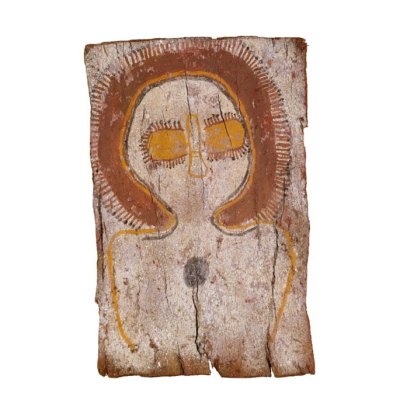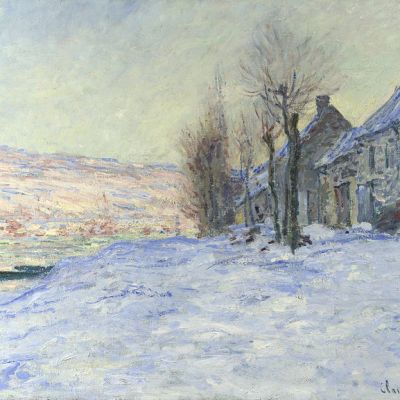From the June issue of Apollo: preview and subscribe here
‘James Turrell embraced the idea of an exhibition in the wilds of Norfolk’
I first discovered James Turrell (b. 1943) at his 1998 retrospective at MAK, Vienna, and was deeply affected by his mesmerising light spaces. ‘Light’, as the artist has said, ‘is a powerful substance, we have a primal connection to it.’ Turrell is concerned with how we perceive colour and light, but the science and technology is hardly apparent as one bathes in atmospheres of misty blues and pinks, or stands before a hovering geometric shape on a wall, created from a single projector. His work seems to descend in a direct line from Barnett Newman, Mark Rothko and Ad Reinhardt, the innovators of post-war America – but in another medium: pure light. Deceptively simple in form, the effect of these artworks is anything but ‘minimal’.
I was able to acquire one of Turrell’s ‘aperture’ pieces from the Vienna exhibition, a rectangle of dawn-pink light that slowly reveals itself as one’s eyes grow accustomed to the low levels of light; and invited the artist (through his then gallerist in the UK, Michael Hue-Williams) to help find a permanent place for the work at Houghton. We eventually decided on the lower storey of an 18th-century Palladian water tower in the park. At the same time, I decided to commission one of Turrell’s ‘skyspaces’ – viewing chambers that alter our vision of the sky through the use of hidden interior lighting – for the recently restored formal planting and ‘wilderness’ on the west side of the house. Working with a local Norwich architect, Michael Morrison, we devised an oak-clad square ‘folly’ rising among the trees, reached by means of a walkway turning around its sides. This area of the grounds once contained a number of garden structures in Sir Robert Walpole’s time – and this helped us to obtain the necessary permissions from English Heritage and other planning bodies.
The exhibition will include works from James Turrell’s hologram series Photo © Pete Huggins, courtesy of Houghton Hall and James Turrell

Over the next few years, we continued to place contemporary works of art in the grounds, but I always held at the back of my mind the idea of a Turrell exhibition. This became a real possibility only after the success of ‘Houghton Revisited’ in 2013 – when we were able to borrow a large group of Sir Robert Walpole’s picture collection from the Hermitage in St Petersburg, and recreate the picture hang in the State Rooms. Some 115,000 visitors flocked to see the Walpole pictures and helped to put Houghton firmly on the artistic map.
James Turrell embraced the idea of an exhibition in the wilds of Norfolk with characteristic enthusiasm, but he was then involved with three major shows in American museums, as well as ongoing commissions around the world. We ourselves were planning a touring show of Houghton works of art, which travelled to the States in early 2014 until May 2015. So this summer was the earliest possible opportunity.
The first task was to find rooms, both inside the main house and in the wings, that were the right size for the various light installations. The plan was to give a broad view of Turrell’s practice from the 1960s to the present day. Working drawings were prepared and sent back and forth by email. A site visit in October last year by Turrell’s key technician, Ryan Pike, helped us to determine what would be possible in the available space. As autumn turned to winter, equipment was ordered, additional loans requested, and we contacted potential sponsors and private patrons, whose support would be so crucial to the exhibition’s viability.
However, I came to realise that we would need something ‘extra’ to really capture the public’s imagination and lure visitors once more to the depths of the countryside. Many years ago, I was fortunate to see one of James Turrell’s most remarkable large-scale installations, when he designed a slowly changing light show for the Pont du Gard, the ancient Roman aqueduct near Avignon. When I rather cheekily suggested something similar, James at once agreed, to my complete surprise and delight. Over the next few weeks he devised an illumination of exquisite beauty and artistry, using not only the façade of the house, with its cupolas and pediment surmounted by giant statues – but also the linking colonnades, and open arcades in each wing. This spectacular display can be viewed late on Friday and Saturday evenings throughout the season.
As I write, we are only a month away from the opening and praying for a warm and dry summer. Above all we are looking forward to seeing our visitors enjoy a drink on the west front of the house as ‘Lightscape’ unfolds around them.
‘Lightscape: James Turrell at Houghton’ is at Houghton Hall from 7 June–24 October.
Click here to buy the latest issue of Apollo
Related Articles
Apollo Award Winners 2013 and Apollo Awards: Exhibition of the Year 2013

